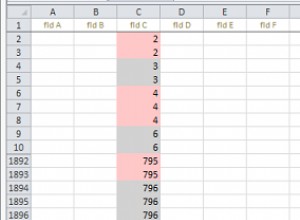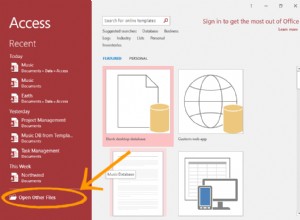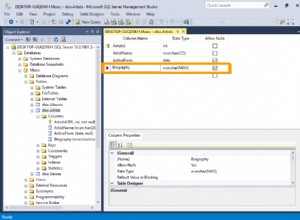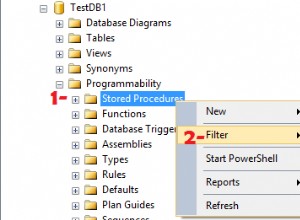La risposta alla tua domanda dipende da SET XACT_ABORT
impostazione:
Ad esempio, prova il codice seguente. La prima divisione per 0 genera un errore ma continua l'esecuzione . La seconda divisione per zero genera un errore e interrompe l'esecuzione:
begin transaction
set xact_abort off
select 1 / 0 -- causes divide by zero error, but continues
select @@trancount -- returns 1
set xact_abort on
select 1 / 0 -- causes divide by zero error and terminates execution
select @@trancount -- we never get here
rollback
Se XACT_ABORT è attivo, gli errori interromperanno la transazione e non avrai bisogno di un TRY/CATCH.
Se XACT_ABORT è OFF, dovrai controllare lo stato di ogni istruzione per vedere se si è verificato un errore:
begin transaction
delete from...
if @@error <> 0
begin
if @@trancount > 0
rollback
return
end
insert into...
if @@error <> 0
begin
if @@trancount > 0
rollback
return
end
commit
Tuttavia, se dovessi trovare un caso in cui devi PROVARE / CATTURA, potresti dover fare qualcosa di speciale quando si verifica l'errore. In tal caso, non dimenticare di PROVARE / CATTURA la gestione delle eccezioni:
begin transaction
set xact_abort on
begin try
select 1 / 0 -- causes divide by zero error and terminates execution
select @@trancount -- we never get here
commit
end try
begin catch
select xact_state() -- this will be -1 indicating you MUST rollback before doing any other operations
select @@trancount -- this will probably be one, because we haven't ended the transaction yet
if xact_state() <> 0
begin try
select 'rollback'
rollback
-- do something to handle or record the error before leaving the current scope
select 'exception processing here'
--insert into...
end try
begin catch
-- ignore rollback errors
end catch
end catch




